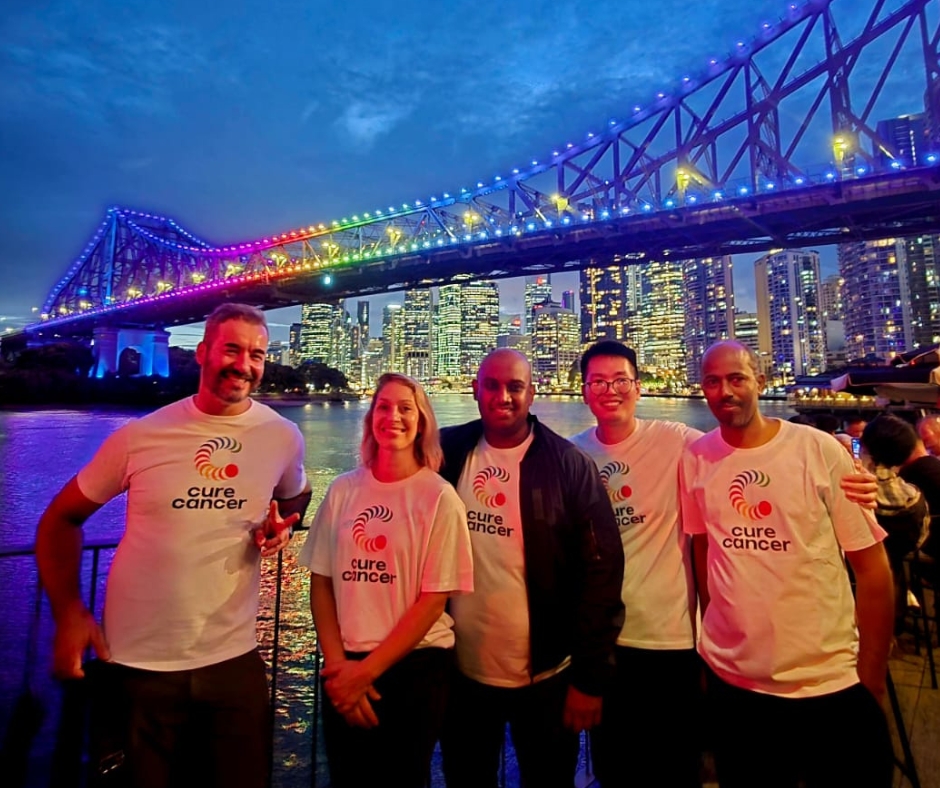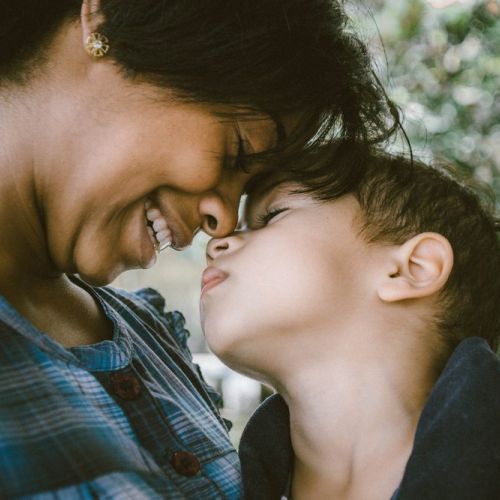The C-Word: What it's like to receive a skin cancer diagnosis in your 20s
By Emily Usher | 5 December 2023

Harriet Hudgell was diagnosed with stage 1 melanoma at only 24 years old in 2020. Source: Supplied
Harriet Hudgell was in the kitchen, cooking barefoot, when she realised a mole that she’d had since childhood looked different to how she remembered it.
“Out of the corner of my eye I saw something dark on my foot. I assumed I'd dropped something and went to brush it off. It didn't move and I realised it was the mole. It had doubled in size and got considerably darker since the last time I'd noticed it."
Harriet tried to get an appointment with her doctor, just to be on the safe side, but COVID meant she needed to go through a telephone consultation first. Unconcerned, Harriet explained the situation and sent across some photos of the mole, as requested.
“I felt a bit silly just sending the one,” she explains, “so I looked back through my photos to see if I could find any pictures of it in the background. Luckily I'd been on holiday a month beforehand, and a year before that, the mole was showing in the corner of the photo. I put all three photos side by side, and the difference was there for all to see. The doctor wanted me to go in immediately.”

“I had to go to the consultation on my own because of COVID, but I didn’t mind too much as I thought I’d be in and out of there quickly. Instead, the doctor took one look at the mole on my foot before calling in somebody to clear his schedule. Within a few hours, they’d removed it and sent it away for testing.”
The results came back quickly, and Harriet couldn’t help feeling a little irritated that the doctor’s office wasn’t able to share them over the phone. She was convinced there would be nothing to worry about. As it turned out, she was wrong.
“The doctor told me I had melanoma stage 1A. Skin cancer. I’d heard of Melanoma. I glazed over, unable to take in what I was being told. Thankfully, they gave me some information to take home with me. I hadn’t heard anything beyond the C-Word.”

The diagnosis brought on mixed emotions for Harriet, but more than anything, she remembers feeling anger. "I was angry that I hadn’t realised there was any possibility this could be cancer, and I couldn’t believe that so many people like me were receiving cancer diagnoses alone and without any support because of COVID. If only we could have communicated with one another, we might have all felt more supported. I was scared to tell people the results, and worried about how they would take the news. I just couldn’t stop crying.”
Harriet was left feeling confused and with countless unanswered questions. What if she got really sick? What if the treatment didn’t work? How would her life have to change? What if she lost her hair? She tried to put on a brave face for the sake of her loved ones, but eventually broke down to her sister.
“I felt like I’d finally reached my limit, and I burst,” she says. “Between choked back sobs, I blurted out how scared I was that the second operation was going to be worse. That the recovery time would be longer. That I would have to face more people asking why my foot was all bandaged up. I was scared about the future, the appointments, the constant fear that it would come back, and I was frustrated that my foot was now limiting me from doing the things I loved. It felt as though no one could really understand what I was going through, and even though it was a relief to offload, I felt guilty, too. People around me had been open about how hard it was for them, and I didn’t want to make it worse.”

Going through cancer on her own during COVID was one of the hardest ordeals Harriet has ever had to face - and overcome. Source: Supplied
Harriet’s second operation date came around quickly, and this time she was given a general anaesthetic. The effects lasted a few days, but once they wore off, Harriet was in a huge amount of pain. Recovery took much longer than she had expected, and the lack of freedom coupled with discomfort, worry and frustration sent Harriet’s emotions spiralling.
“My feelings of loneliness and isolation continued to build. I felt like a huge burden on those around me. It was hard to talk about how I was feeling, it felt like no one really understood. I knew that things would get better, but that didn’t stop me being scared.”
Harriet eventually received the ‘all clear’ and promptly burst into tears. “The relief was unreal,” she says. “I know my chances of the cancer coming back are now 30% higher, but in that moment I didn’t care. I was free.”
The next stage of the journey for Harriet is getting her life back on track. Building feeling and movement in the affected foot is a long and ongoing process, but Harriet continues to see improvement every day. “I was told it was unlikely I’d get the full range of movement and flexibility back, but I’ve worked hard and I’m pretty damn close.”

Three years after her melanoma diagnosis, Harriet is travelling the world in her trusty sailboat. Source: Supplied
However, Harriet still has to be mindful. “When I push myself too far, or get too cold, the scar gets angry and blotchy to remind me it’s there. Every now and then I notice a mole I hadn’t before, and the obsessing starts. I find myself checking my skin all the time, which triggers anxiety. I’m terrified that if the cancer returns, it could be worse. But we’ll cross that bridge if we get to it.”
The biggest realisation for Harriet is cancer’s total lack of discrimination. “Cancer doesn’t care about who it chooses. I never expected to be the person telling this story, nor did I want to be. But here I am. I’d urge anyone and everyone to make sure they go to their check-ups, no matter how old you are, who you are or where you’re from. Talk to a doctor if you’re concerned about anything. For those with cancer, I want you to know that you are not alone. You are loved and supported, and you deserve all the answers to all the questions you have. Be assertive, and ask all the questions, no matter how silly they seem. This is a time to put yourself first. You’re going to need help and support, so take it. Push aside your pride and guilt, and let someone take care of you.”


Support skin cancer research today
2 in 3 people living in Australia will have to confront a skin cancer diagnosis one day.
Every year, over 17,000 Australians are diagnosed with melanoma, the deadliest type of skin cancer. For non-melanoma skin cancers, the number is an alarming 400,000 people diagnosed per year.
Unfortunately, skin cancers like melanoma are challenging to treat due to their invasive nature and high resistance to chemotherapy.
Brilliant researchers like Prof Nikola Bowden are trying to change this by developing novel treatments that are effective, accessible and life-saving. But they can't continue their vital research without your support.










